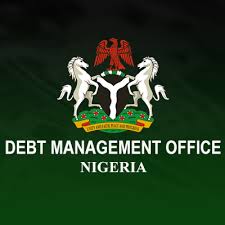Nigeria’s total public debt has surged to a staggering N144.67 trillion ($94.23 billion) as of December 31, 2024, representing a significant increase of 48.58% compared to the N97.34 trillion ($108.23 billion) recorded at the end of December 2023. This substantial rise is attributed to a combination of new external borrowings and the impact of naira depreciation, which inflated the naira equivalent of dollar-denominated debt.
The Debt Management Office (DMO) reported that Nigeria’s external debt experienced an astonishing growth of 83.89%, jumping from N38.22 trillion ($42.50 billion) in December 2023 to N70.29 trillion ($45.78 billion) in December 2024. This sharp increase was largely driven by additional foreign loans obtained during the year and the weakening of the naira against major international currencies.
Domestic debt also witnessed considerable growth, rising by 25.77% from N59.12 trillion ($65.73 billion) at the end of December 2023 to N74.38 trillion ($48.44 billion) in December 2024. The Federal Government’s domestic debt component grew significantly from N53.26 trillion to N70.41 trillion, reflecting a 32.19% increase. This growth highlights the government’s continued reliance on local borrowing to finance budget deficits and infrastructure projects.
In contrast, the domestic debt owed by states and the Federal Capital Territory (FCT) decreased from N5.86 trillion to N3.97 trillion, marking a decline of 32.27%23. This reduction indicates a more cautious approach by some subnational governments towards debt accumulation during the year.
The composition of Nigeria’s public debt as of December 2024 shows that external debt constitutes 48.59% of the total, while domestic debt makes up 51.41%, indicating a relatively balanced debt structure. However, the continued increase in external borrowings suggests a growing reliance on foreign debt to bridge budgetary shortfalls.
This significant rise in public debt raises concerns about Nigeria’s financial sustainability and the potential long-term implications for economic growth and development. As the country navigates these financial challenges, policymakers will need to carefully manage debt levels while ensuring that borrowing is used effectively to support economic recovery and infrastructure development.
